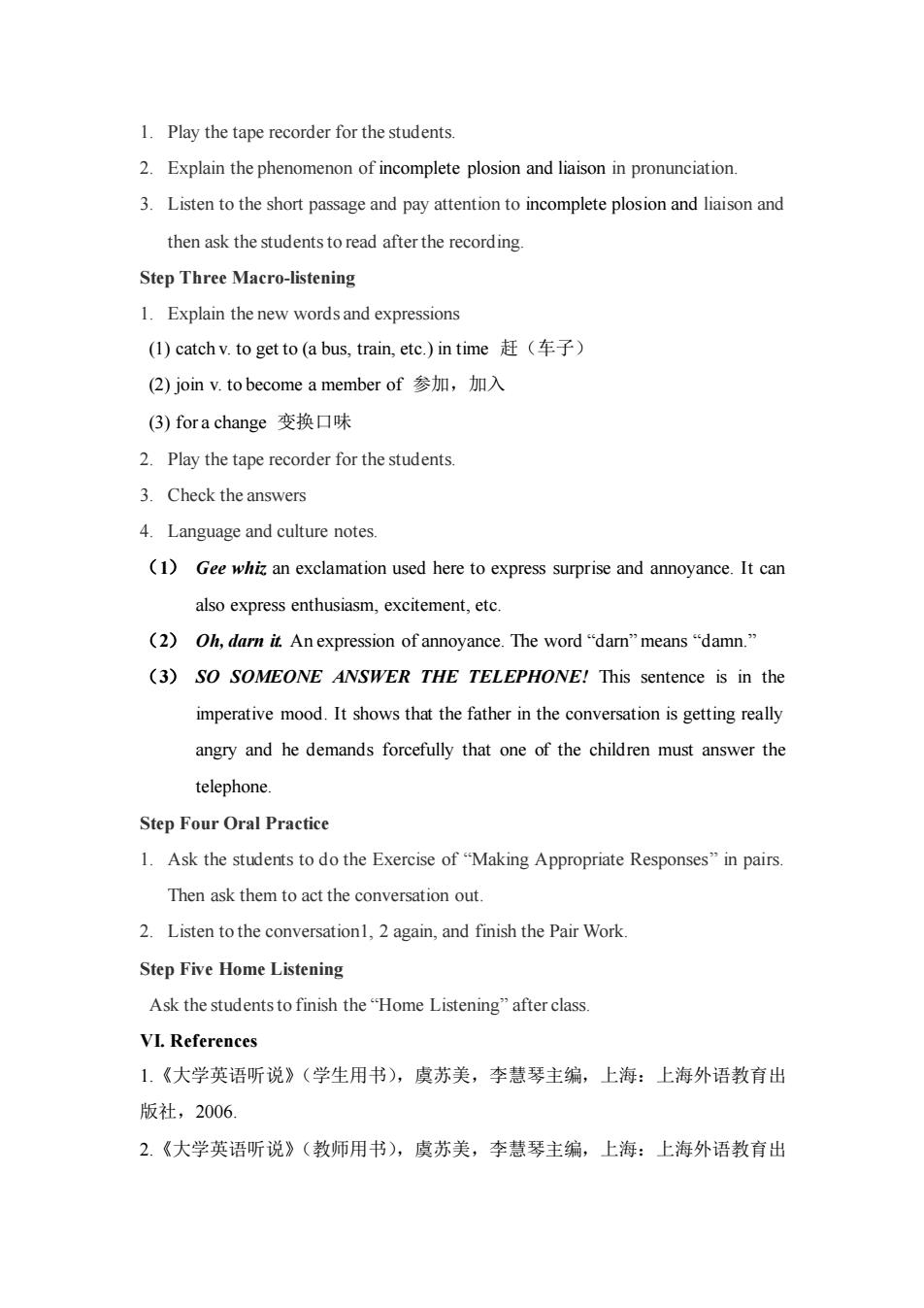正在加载图片...

1.Play the tape recorder for the students. 2.Explain the phenomenon of incomplete plosion and liaison in pronunciation. 3.Listen to the short passage and pay attention to incomplete plosion and liaison and then ask the students to read after the record ing. Step Three Macro-listening 1.Explain the new words and expressions (I)catchv.to getto(abus,train,.etc.)in time赶(车子) (2)join v.to become a member of参加,加入 (3)fora change变换口味 2.Play the tape recorder for the students. 3.Check the answers 4.Language and culture notes. (1 Geewhan exclamation used here to express surprise and annoyance.It can also express enthusiasm,excitement,etc. (2)Oh,darni Anexpression of annoyance..The word“"dam”means“damn. (3)SO SOMEONE ANSWER THE TELEPHONE!This sentence is in the imperative mood.It shows that the father in the conversation is getting really angry and he demands forcefully that one of the children must answer the telephone. Step Four Oral Practice 1.Ask the students to do the Exercise of"Making Appropriate Responses"in pairs Then ask them to act the conversation out. 2.Listen to the conversationl,2 again,and finish the Pair Work. Step Five Home Listening Ask the studentsto finish the"Home Listening"after class VL.References 1.《大学英语听说》(学生用书),虞苏美,李慧琴主编,上海:上海外语教有出 版社,2006. 2.《大学英语听说》(教师用书),虞苏美,李慧琴主编,上海:上海外语教育出1. Play the tape recorder for the students. 2. Explain the phenomenon of incomplete plosion and liaison in pronunciation. 3. Listen to the short passage and pay attention to incomplete plosion and liaison and then ask the students to read after the recording. Step Three Macro-listening 1. Explain the new words and expressions (1) catch v. to get to (a bus, train, etc.) in time 赶(车子) (2) join v. to become a member of 参加,加入 (3) for a change 变换口味 2. Play the tape recorder for the students. 3. Check the answers 4. Language and culture notes. (1) Gee whiz an exclamation used here to express surprise and annoyance. It can also express enthusiasm, excitement, etc. (2) Oh, darn it. An expression of annoyance. The word “darn” means “damn.” (3) SO SOMEONE ANSWER THE TELEPHONE! This sentence is in the imperative mood. It shows that the father in the conversation is getting really angry and he demands forcefully that one of the children must answer the telephone. Step Four Oral Practice 1. Ask the students to do the Exercise of “Making Appropriate Responses” in pairs. Then ask them to act the conversation out. 2. Listen to the conversation1, 2 again, and finish the Pair Work. Step Five Home Listening Ask the students to finish the “Home Listening” after class. VI. References 1.《大学英语听说》(学生用书),虞苏美,李慧琴主编,上海:上海外语教育出 版社,2006. 2.《大学英语听说》(教师用书),虞苏美,李慧琴主编,上海:上海外语教育出